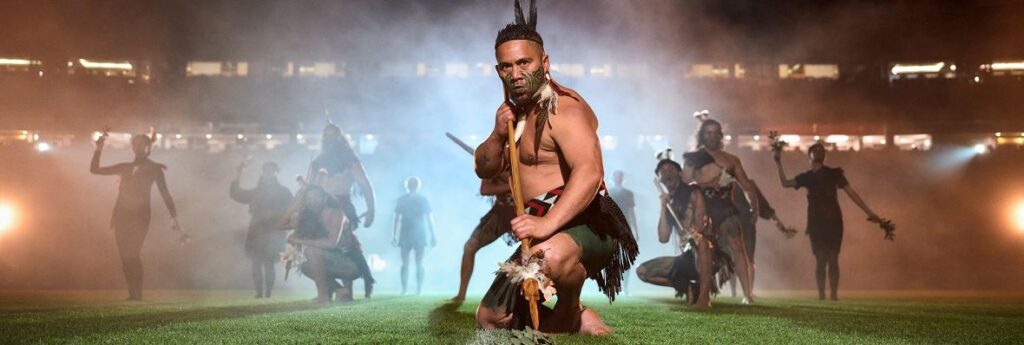While all eyes are the men’s World Cup next month in Qatar, New Zealand kicked off activities for the women’s tourney, to be held in the South Pacific nation (jointly with Australia) next summer (July 19 to Aug. 19).
In conjunction with the tournament draw in Auckland on Saturday, which saw Canada selected to play against Australia, Ireland, and Nigeria in the first round, New Zealand issued a “powerful invitation” via YouTube to incoming football teams, fans, and manuhiri (visitors), along with a rare Māori welcoming ceremony (banner photo).
Reserved for significantly important occasions, the wero, or laying down of the taki within the pōwhiri (Māori welcoming ceremony), signalled the invitation to the 10 qualifying nations that will play games in Aotearoa (New Zealand) next year.
And while Canada won’t be one of them (scheduled to play all its games in Australia), Tourism New Zealand notes that Canadian visitors can still attend matches and enjoy the tournament atmosphere in regions and communities across the North and South Islands, not to mention discovering the country’s “spectacular scenery and rich variety of experiences.”
Reaching New Zealand will be easy, adds the tourist board, thanks to direct Air Canada service from Vancouver to Auckland, which returns this November.
New Zealand team members Claudia Bunge and Paige Satchell accompanied ahi Kaa (traditional custodians of the land) Ngāti Whātua Ōrākei to deliver the rousing welcome.
“I can’t wait for people to see more of Aotearoa New Zealand next year, I’m really proud to be a Kiwi and it was awesome to take part in the welcome. Standing next to the amazing group from Ngāti Whātua Ōrākei and sharing our culture with the world was a humbling and powerful experience,” said Bunge.
The maioha (greeting) was delivered by renowned Māori Performing Arts tutor Tarumai Kerehoma-Hoani and set the scene for the compelling wero delivered by another leader of Ngāti Whātua Ōrākei, Piripi Davis, who demonstrated a masterful use of traditional weaponry passed on through his ancestors.
Graham Tipene of Ngāti Whātua Ōrākei, added, “The hope is that countries visiting will see the point of difference that only Māori and Aotearoa can offer.”
Watch the video below.

